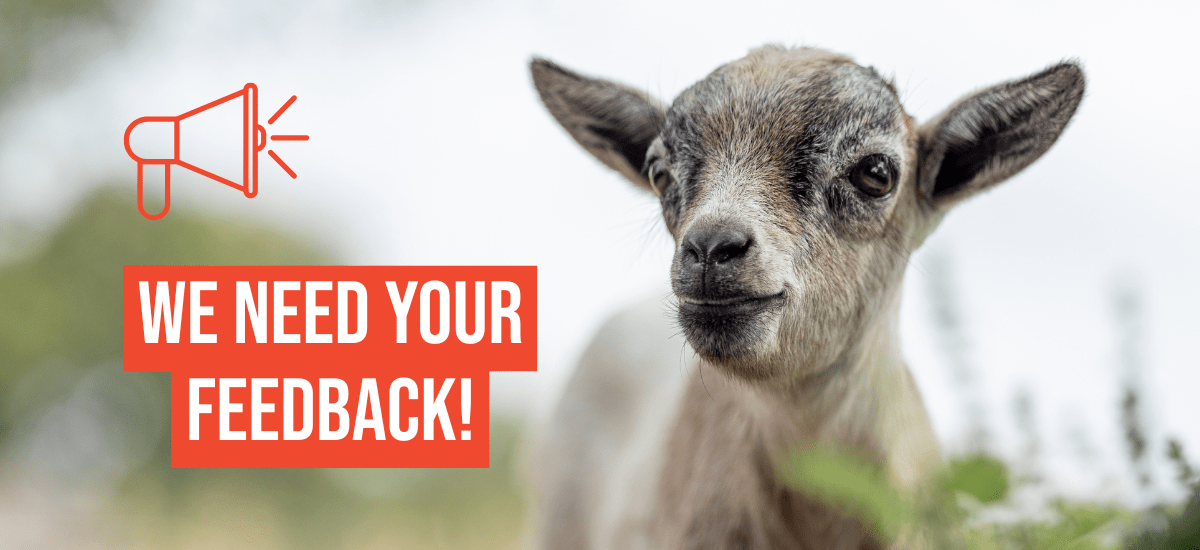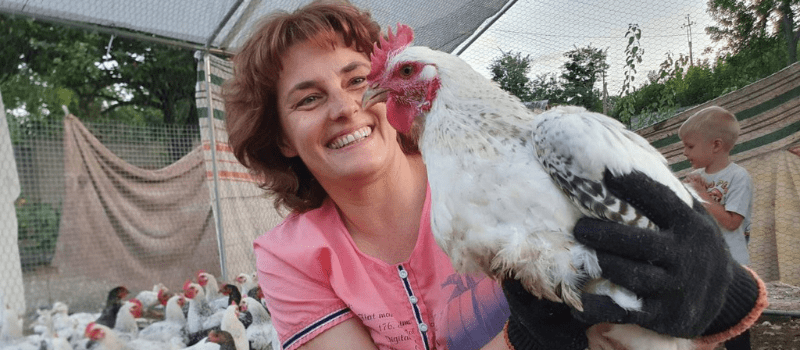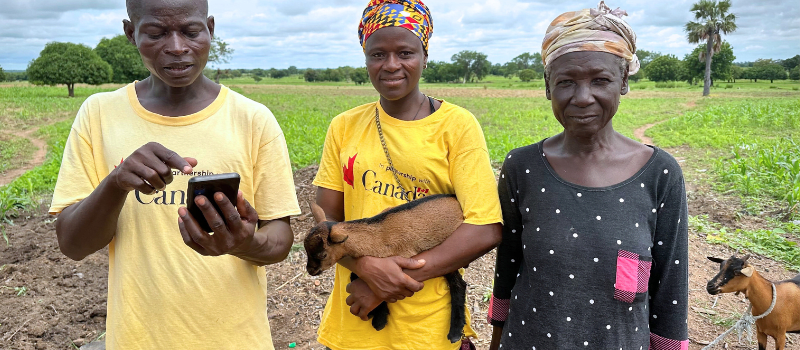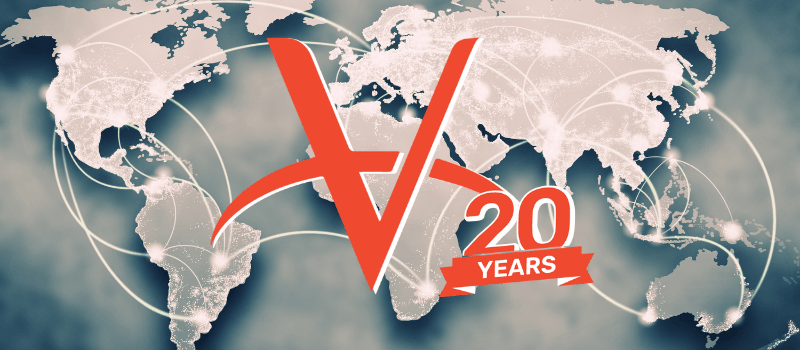This Op-Ed was written by Charmaine Brett, Executive Director at Veterinarians Without Borders, reflecting on a trip taken to Ukraine in October 2024.
In the war-torn Ukrainian village of Babai, Karina Volkova’s story is one of resilience. A dedicated farmer, Karina has made poultry farming a lifeline for her family. "These chickens are more than just food," she shared with our field staff in the Kharkiv region. "They represent our future." Karina’s journey demonstrates how, even in the harshest of crises, sustainable aid can foster both survival and long-term recovery.
Like many in Ukraine, Karina faced immense challenges as the war disrupted her community. But through Veterinarians Without Borders' (VWB) poultry initiative, she has transformed her livelihood. Karina now raises 100 broilers in five cycles per year, providing her family with high-quality meat and selling the surplus at the market. With support from VWB, she adopted intensive farming techniques, introduced smoking for value-added products, and is in the process of expanding her business. “This has become more than a way to provide for my family—it’s a sustainable business,” Karina said with pride.
 PHOTO: Karina Volkova, a poultry farmer in Babai, Ukraine.
PHOTO: Karina Volkova, a poultry farmer in Babai, Ukraine.
 PHOTO: Charmaine Brett (right) visiting VWB partners in Ukraine.
PHOTO: Charmaine Brett (right) visiting VWB partners in Ukraine.
 PHOTO: Karina receives chicks as part of the poultry initiative.
PHOTO: Karina receives chicks as part of the poultry initiative.
Karina is one of hundreds of Ukrainian farmers participating in VWB’s poultry program, which offers a lifeline to families caught in conflict. The initiative, supporting nearly 1,000 families, goes beyond distributing chickens; it equips farmers with the knowledge and resources to build sustainable livelihoods. It exemplifies the need for a new approach—one that integrates humanitarian relief, development, and anticipatory action from the outset.
Poultry as a Pathway to Resilience
Our poultry initiative goes beyond distributing chickens. Each participant receives a kit that includes 30 broilers, starter feed, and medication, paired with training in sustainable farming practices and micro-business skills. Over the past year, this initiative has reached more than 700 households in regions where the war has wiped out traditional income sources.
The results speak for themselves: participating families have reported an average 30% increase in household income, reducing their reliance on food aid. Local markets have seen a boost too—by fostering opportunities for trade and small businesses, the program has injected vitality back into the local economy. Karina, like many others, can now earn enough to buy school supplies for her children and maintain a small savings fund for emergencies.
Why Canada Should Support Integrated Aid
This progress in Ukraine is not just a story of recovery; it’s a call to rethink how we, as a global community, provide aid. Traditional models see humanitarian relief and development as sequential phases—a crisis strikes, we respond, and only then do we think about rebuilding. But in Ukraine, a war that has displaced over 3.7 million people internally is not following a predictable timeline. It’s a protracted crisis, and the old way of doing things falls short.
Instead, our approach embraces the “humanitarian-development-peace nexus,” a strategy that has gained traction among global aid agencies, including the United Nations and the World Bank. This model recognizes that relief, development, and peacebuilding must happen together. Aid must be dynamic, adaptive, and integrated, especially in the face of crises like the war in Ukraine or the mounting threats from climate change.
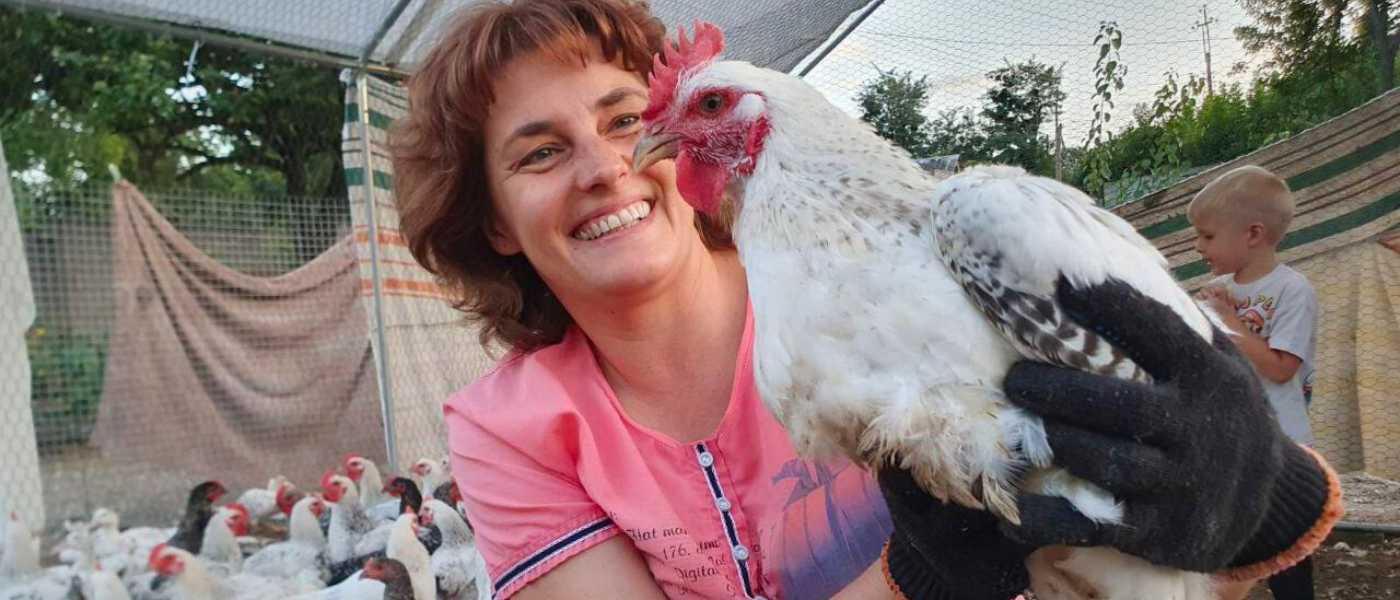 PHOTO: Karina tends to her flock alongside her young son, nurturing both their livelihood and their future.
PHOTO: Karina tends to her flock alongside her young son, nurturing both their livelihood and their future.
Canada has a unique opportunity to support programs like our poultry initiative, which provide a blueprint for delivering aid in protracted crises. With its strong history of backing international development—from emergency response to sustainable agriculture—Canada is well-positioned to lead the way. Now is the time to embrace approaches that address immediate needs while also laying the groundwork for resilience.
A Different Kind of Development
In conflict zones, waiting for the "right" time to transition from relief to development is impractical. Families like Karina's cannot wait for the war to end to start rebuilding their lives. "We need jobs and food now,” Karina explains, underscoring a critical reality: families in conflict zones can’t wait for peace to rebuild—they need support that meets both immediate needs and builds lasting resilience.
The benefits of VWB’s poultry program extend beyond individual families. Our local partner, the Interregional Union of Poultry Breeders, is helping farmers like Karina pool resources, purchase supplies in bulk, and access larger markets. As the cooperative’s head, Vadym Shiyan, told me, “We are stronger when we work together. By joining forces, we protect our farmers from intermediaries and ensure fair prices for their products.”
Listening to Communities, Adapting to Needs
A central challenge in our work is avoiding the trap of imposing pre-set aid agendas. Too often, projects designed in faraway offices fail to understand the realities on the ground. Our experience in Ukraine highlights a crucial lesson: truly effective aid starts with listening to communities. The choice to focus on poultry wasn’t made in a vacuum—it was shaped by conversations with local farmers, who identified it as a practical way to regain control over their lives.
This approach is critical as we confront other global challenges, such as climate change. In recent years, extreme weather events have displaced millions of people globally, from floods in Pakistan to droughts in the Horn of Africa. Future crises will not always follow neat categories of “emergency” or “development.” We need solutions that are flexible and responsive—solutions that put community voices at the center.
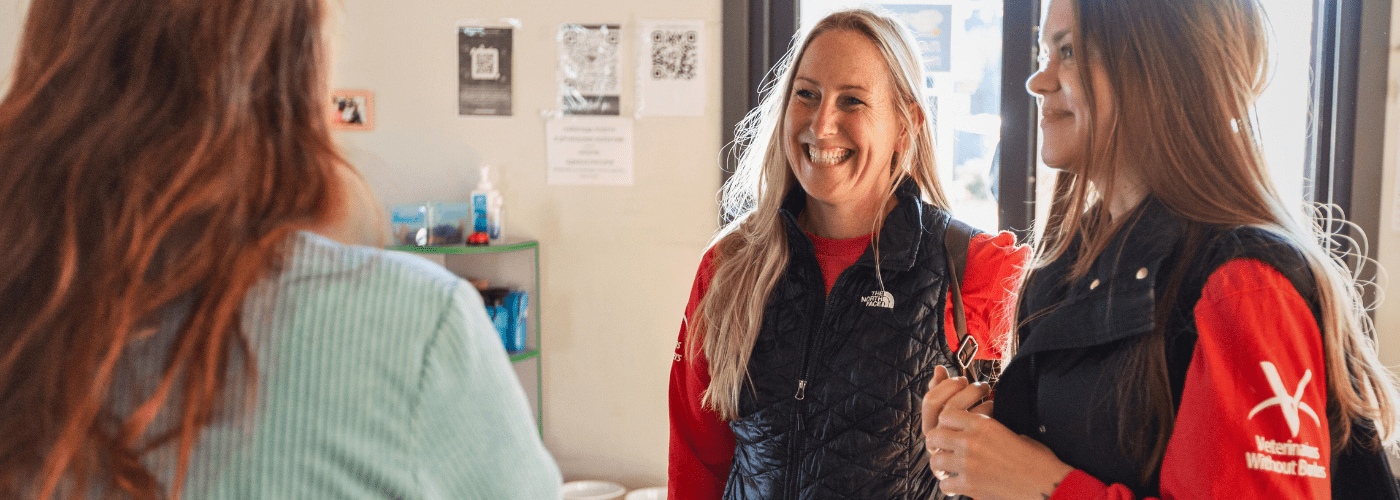 PHOTO: Charmaine (center) joins VWB's Ukraine Program Manager, Daria Kuznetsova (right), to chat with program partners in Ukraine.
PHOTO: Charmaine (center) joins VWB's Ukraine Program Manager, Daria Kuznetsova (right), to chat with program partners in Ukraine.
A Call to Action for Canada
As the world faces increasingly complex challenges, Canada has an opportunity to lead in redefining how we provide aid. By supporting integrated approaches that blend relief, development, and anticipatory action, we can build more resilient communities both in Ukraine and around the world.
Programs like our poultry initiative are a starting point. They offer more than just chickens—they offer the possibility of a stable livelihood, a revitalized local market, and a way for communities to rebuild on their own terms. Canada’s support can help expand these efforts, ensuring that families like Karina’s have the resources they need—not just to survive but to thrive, no matter what comes next.
Now is the time to rethink aid—making it dynamic, adaptive, and truly responsive to the communities it aims to support. The future of aid lies not in segmented programs but in holistic solutions that embrace the interconnectedness of humanitarian relief, development, and peace.
